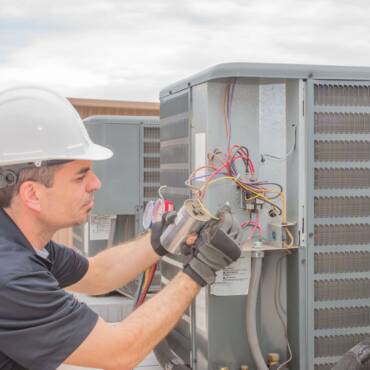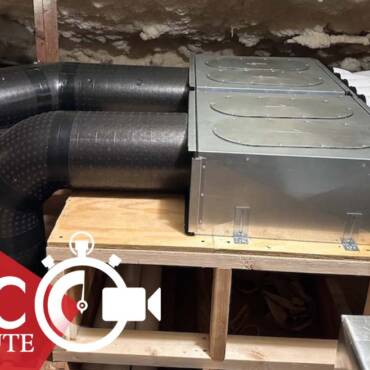When I first started my company, I had the privilege of being mentored by a man who had built and run one of the most successful HVAC companies in the country. He was a no-nonsense leader who understood the intricacies of the trade, from managing complex installations to fostering strong, lasting relationships with clients. One day, over coffee, he asked me a question that’s stuck with me ever since: “Why is private equity buying up everything in sight in our industry?” It wasn’t a rhetorical question—he was genuinely puzzled and challenged me to find out.
At the time, I didn’t have a clear answer. The surge of private equity acquisitions in the skilled trades was undeniable, but understanding the why required digging into factors that weren’t immediately obvious. What I discovered changed the way I think about our industry and its future. Private equity’s interest isn’t just a passing trend; it’s driven by a convergence of economic, technological, and demographic factors that are reshaping the landscape— and it has the potential to redefine what it means to be successful in this business.
Essential Services in a Changing World
The skilled trades are the backbone of modern life. Services like HVAC, plumbing, electrical work, and mechanical contracting are essential for keeping homes, businesses, and critical infrastructure functional. The demand for these services is consistent, predictable, and largely immune to economic downturns. This kind of steady, recession-resistant revenue is a goldmine for private equity firms looking to maximize returns.
But there’s more to the story. Climate change and evolving environmental standards are pushing for a wholesale upgrade of outdated systems to energy-efficient, eco-friendly solutions. For example, the U.S. Energy Information Administration (EIA) projects that energy consumption in commercial and residential buildings will continue to increase as the climate warms, placing even greater emphasis on effective heating and cooling solutions. This has sparked a surge in demand for retrofits, maintenance, and modernization, creating lucrative opportunities for companies positioned to capitalize on these trends.
Data Centers and the Technology Boom: The exponential growth of the digital economy has also transformed the demand for skilled trades. Data centers—which power everything from cloud computing to streaming services—require 24/7 climate control to keep servers from overheating. The global data center cooling market is projected to grow from $10.7 billion in 2020 to $19.1 billion by 2025, with a compound annual growth rate (CAGR) of 12.7%, according to Markets and Markets. As more businesses and services move online, the need for specialized HVAC systems and maintenance expertise continues to skyrocket.
The Workforce Crisis: An Industry at a Crossroads
Yet even as demand rises, the skilled trades face a major challenge: a looming labor shortage that could cripple the industry. Over 75% of the skilled trades workforce is expected to retire within the next 7-10 years, according to The Manufacturing Institute. At the same time, fewer young people are choosing careers in the trades, with many high school graduates opting for four-year college degrees instead. This “enrollment cliff” has led to a severe supply-and-demand imbalance, driving up wages and making skilled labor one of the most valuable resources in today’s economy.
High Demand, Limited Supply: The U.S. Bureau of Labor Statistics projects that the need for electricians will grow by 7% and for HVAC technicians by 5% from 2022 to 2032. With fewer workers available to meet this increasing demand, wages are rising—up 14% from 2019 to 2022, according to the Bureau of Labor Statistics. For private equity, this labor crisis represents both a challenge and an opportunity. Firms are betting big on the idea that companies with strong recruitment and training programs will be positioned to dominate the market and yield high returns.
The Skilled Trades: A People-Driven Business Built on Relationships
Despite the financial allure, the skilled trades are fundamentally a people business. It’s not just about the work itself; it’s about the relationships that make the work possible. Account executives, estimators, project managers, business development professionals, dispatchers, technicians, and field staff all play crucial roles in creating a cohesive, service-oriented experience for customers. When employees feel valued and motivated, they deliver exceptional service, build trust with clients, and contribute to a positive work culture that fuels long-term success.
Relationship-Building Across Roles: Technicians and field staff often become the face of the company, forming personal connections with clients that can last years or even decades. Meanwhile, account executives and business development professionals are responsible for forging new relationships and bringing in business, while dispatchers ensure that everything runs smoothly behind the scenes. Estimators and project managers bring expertise to complex installations and projects, making sure clients’ needs are met efficiently and effectively. When each role is respected and supported, the company thrives—but when these relationships break down, the entire structure starts to crumble.
The Impact of Private Equity’s Profit-Driven Approach
This brings us to the biggest risk: the clash between a relationship-driven industry and the profit-first mindset of private equity. Investment firms often enter with strategies focused on rapid growth, cost-cutting, and squeezing maximum efficiency from operations. But these approaches can be a poor fit for a business where trust, expertise, and personal relationships are paramount.
The Cost of High Turnover: According to the National Bureau of Economic Research, private equity-owned companies experience a 13% increase in employee turnover compared to non-PE-owned firms. High turnover in the skilled trades doesn’t just result in the loss of technical skills—it means losing the relationships those employees have built with clients and colleagues. In a field where word-of-mouth referrals and repeat business are critical, this kind of disruption can be devastating.
Rushed Hiring and Cultural Mismatches: In an attempt to quickly fill vacancies, companies may hire underqualified or poorly matched employees, leading to more mistakes, customer dissatisfaction, and further stress on the remaining staff. The Harvard Business School study on service providers found that 30% of customers who leave a company do so because they feel undervalued or neglected. In the skilled trades, where client trust is hard-won and easily lost, failing to prioritize people can have severe financial repercussions.
Navigating Cultural Shifts in a People-Driven Industry
The skilled trades must find a way to adapt without losing their identity. This means balancing the efficiency and scale private equity brings with the values that have defined the industry for generations. Companies need to implement systems that anticipate problems, streamline operations, and support employees in delivering exceptional service. Clear communication, team alignment, and a shared vision become even more crucial in this context.
The path forward is about understanding that profitability and people-centric values aren’t mutually exclusive. If done thoughtfully, investment and innovation can elevate the industry. But if financial metrics overshadow the relationships and craftsmanship that make these companies special, there’s a risk of eroding the very foundations that built the skilled trades into what they are today.
Ultimately, the question my mentor posed — “Why is private equity buying up everything in sight in our industry?”—has answers that are both fascinating and fraught with complexity. As private equity reshapes the landscape, what’s at stake is not just profitability, but the soul of an industry rooted in relationships, expertise, and a legacy of excellence.
Whether you require installation, repair, or maintenance, our technicians will assist you with top-quality service at any time of the day or night. Take comfort in knowing your indoor air quality is the best it can be with MOE heating & cooling services Ontario's solution for heating, air conditioning, and ventilation that’s cooler than the rest.
Contact us to schedule a visit. Our qualified team of technicians, are always ready to help you and guide you for heating and cooling issues. Weather you want to replace an old furnace or install a brand new air conditioner, we are here to help you. Our main office is at Kitchener but we can service most of Ontario's cities
Source link



